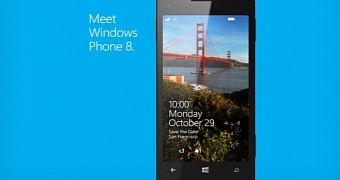Microsoft will release Windows Phone 10 in 2015, and even though the company has tried to keep all details secret, more information on the changes it could bring has reached the web through unofficial channels.
This time, Twitter user @Nawzil8, who has already provided quite a lot of accurate details about Microsoft’s mobile plans, has revealed in a short tweet that all Windows Phone 8 devices that are now on the market or will launch soon will also be capable of running Windows Phone 10 when the new OS comes out.
Windows Phone 10 will most likely be offered as a free update for devices currently running Windows Phone 8.1, but again, only very limited details are available on this.
Updates that would prepare all devices for the new operating system are expected to be released a few days before the launch of Windows Phone 10, sources said previously.
Surprisingly low system requirements
Seeing Windows Phone 10 running on all Windows Phone 8 devices isn’t quite surprising given the fact that Microsoft is trying to make its operating system available on as many smartphones as possible, but it’s remarkable to say the least that system requirements of the new platform would remain very low.
This means that Windows Phone 10 will be able to run not only on devices with 1 GB of RAM, but also on budget smartphones running Windows Phone 8, such as the Lumia 520, which only comes with 512 MB of RAM.
This is definitely pretty good news for all Windows Phone owners, but do not expect the full-feature lineup included in Windows Phone 10 to be available for all these devices, so low-end smartphones might actually lack a few new options.
Also happening on the desktop
As far as the desktop is concerned, Windows 10 is very likely to come with the same system requirements as Windows 8.1 did, so all computers running the current modern operating system should fully support the upcoming release as well.
At this point, Windows 8.1 requires 1 GB of RAM for 32-bit versions and 2 GB of RAM for those with a 64-bit configuration, and these are very likely to stay the same in Windows 10.
Microsoft wants consumers and enterprises to get over the Windows 8 disaster, so a free upgrade could also be offered on the desktop side of the business. These details, however, remain scarce for the time being, so more information is expected in the coming months as we get closer to the spring 2015 release date of Windows 10.

 14 DAY TRIAL //
14 DAY TRIAL //